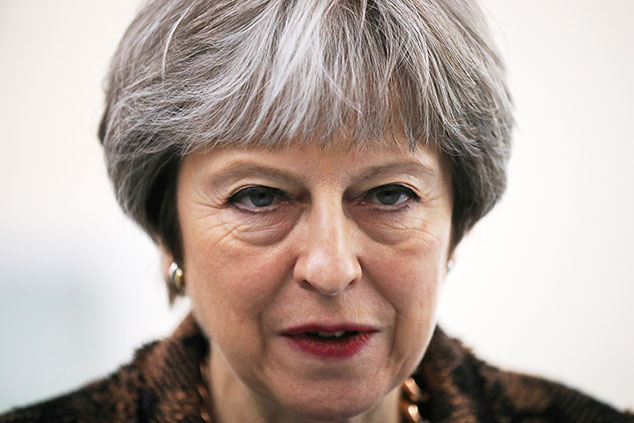
Ever since the result of the EU referendum was announced there has been a big debate over the role that Parliament should have in Brexit. In the past few weeks, the government has been defeated multiple times in the House of Lords, while the Commons recently passed a non-binding resolution aimed at keeping the government committed to remaining in the customs union (the government deliberately abstained).
One key backbencher who has been leading the fight for a softer Brexit is the Labour MP Stephen Kinnock. Kinnock is a member of the Brexit Select Committee, which released a report at the end of the March looking at the various options.
The report stopped short of explicitly favouring a specific option, but the general view of the members was pretty clear from the fact that it said that if the government’s preferred option of a bespoke deal was not possible, “EFTA/EEA membership remains an alternative and would have the advantage of continuity of access for UK services”.
For his part, Kinnock is clear that “a soft Brexit is the best option for our economy”. After all, it is pretty clear that “by far our largest trading partner is the one on the doorstep and we must work hard to keep that intact”.
Despite the fact that it “ticks a number of boxes”, including ending the direct jurisdiction of the European Court of Justice, the Norway model has been criticised on the ground that it would turn us into a “rule taker” and would include accepting freedom of movement. However, Kinnock thinks that these problems have been exaggerated.
EEA members “have voice at the table”
“Despite what many pundits think,” EEA members “have a voice at the table,” he argues. In any case, “the only country that is not a rule taker to a certain degree is North Korea” and many international standards “just copy and paste the relevant European law”.
The issue of immigration is a little trickier. But Kinnock remains confident that Britain would be able to win some concessions on how freedom of movement operates if it was willing to accept the wider principle. In his view, “the negotiations are like building a house: once you agree the foundation and the general plans, you can haggle over windows and chimneys”.
Articles 112 and 113 of the EEA agreement “allow countries to impose an emergency break, one which would crucially come into effect while negotiations over the exact details took place”.
Europe has also been willing to show some flexibility. For example, Lichtenstein has industry-by-industry quotas and Switzerland would have been given the right to invoke Articles 112 & 113 if the Swiss had voted to join the EEA in 1992.
Indeed, if the government have failed to get Europe to compromise it is only because of “the prime minister’s incompetence”. Instead of accepting that “the result of the last general election show that there is no mandate for her red lines” she continues to “waste time” with her current strategy.
It’s not too late for a soft Brexit
With the March 2019 exit date less than a year away “we are in a similar position to a person trapped on a burning platform”. Still, even at this late stage “it would be possible to join EFTA, retain our place in the EEA, which we are currently part of by virtue of our EU membership, and then invoke Article 112”.
Kinnock admits that the issue of the customs union is primarily important “because of Northern Ireland”. Indeed, if the border wasn’t an issue he’d “be more relaxed about the prospect of low-key controls along the lines of Norway and Sweden”, although even then “there are big worries about how our ports will adapt”. Still, there’s no way he can see of getting around the Irish problem without Britain staying in the customs union.
Overall, Kinnock is worried that May’s intransigence is pushing us “toward a CETA agreement [EU/Canada free trade agreement] that doesn’t include services and would lead to a hard border between Northern Ireland and the Republic”.
At the moment, his big priority is to introduce an amendment to the Withdrawal Bill that would keep the UK in the EEA. A similar amendment will be debated and voted on in the House of Lords during the Bill’s report stage. With the support of sympathetic Conservatives, says Kinnock, this could “command a solid majority of the Commons”, although these pro-European moderates “are coming under a huge amount of pressure”.